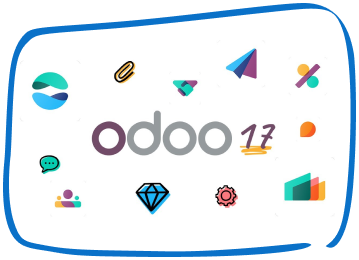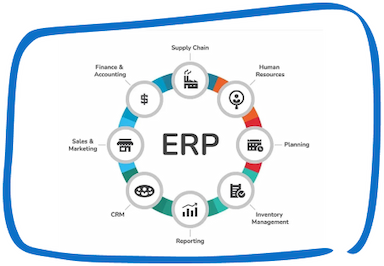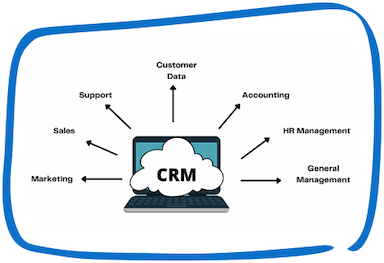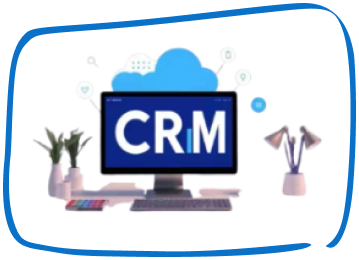Human capital management (HCM), human resources management system (HRMS), and human resources information system (HRIS) are frequently used identically. However, as more advanced technologies have developed over time, there are minor variations across the three. Human resources (HR) and HRIS systems developed over time into an HCM that was more data-management oriented, which paved the way for today’s more comprehensive and strategic, employee-focused HRMS software solution.
HRIS:
Benefits, payroll, labor management, and core HR are just a few of the HR operations for which HRIS stands for connected data management. HR teams started taking on more duties, such as hiring and talent acquisition, and the HRIS assisted in processing and managing comprehensive employee data as well as HR-related regulations and procedures. The most advanced HRISs are interactive information management systems that standardize HR duties and procedures and enable precise recordkeeping and reporting. By facilitating more effective communication between workers and the organizations they represent, the HRIS frees up HR staff members to engage in higher-value, more strategic tasks. The word HRIS is still widely used today.
HCM:
These days, people often use the term HCM to describe a comprehensive set of cloud-based HR tools aimed at improving the employee experience. Analysts’ clear shift in referring to the field as HCM ensures its continued popularity among clients and suppliers, even though the term was used before the cloud era. These days, an HCM system frequently includes AI, digital assistants, and other tools that let users work together and share data among teams. The additional capability includes advanced personnel management functions such as learning, succession planning, performance management, and compensation planning.
Moreover, they integrate business planning tools such as workforce modeling and strategic workforce planning. HR functions, whether data-driven, transactional, or strategic, are all included in HCM. It turns the hiring, training, payroll, compensation, and performance management processes that human resources departments typically carry out into chances to increase productivity, engagement, and business value. HCM regards the workforce as a fundamental company asset that, similar to any other asset, companies can maximize through strategic investment and management. It is not just a cost of doing business.
HRMS:
By building upon the HRIS, HRMS software in UAE provided businesses with a more comprehensive software suite for managing internal HR tasks. In the early 2000s, analysts coined the term HRMS for on-premises HR software suites. HRMS helps HR professionals in managing modern workforces by providing crucial company asset information. It covers employee data management, payroll, recruitment, benefits, training, talent management, employee engagement, and attendance. While “HRMS” still refers to cloud-hosted systems, it’s less common for native cloud applications. People widely associate the term more with on-premises systems from the past. If you search the internet, you can find material on both HRMS and HCM, which are still interchangeable names.
Transform Your HR Operations with Elate HRMS
Streamline employee management, payroll, attendance, and performance tracking with Elate HRMS. Simplify HR tasks and enhance productivity with a comprehensive, user-friendly platform.
HR challenges in the age of digital transformation
The workforce is becoming more mobile, varied, and global than ever thanks to new technological advancements that are transforming every aspect of our lives and careers. Companies need HR to play a crucial role in their organizations if they are to adapt to change and eventually prosper in the digital age.
These days, companies expect HR teams to play a more strategic role within the organization. Apart from planning for organizational changes such as mergers, expansions, and reorganizations, companies must optimize their workforce. They need to facilitate faster, smarter decision-making for both executives and individual contributors. It’s crucial to boost employee engagement and enhance overall corporate performance. They should also make the employee experience exciting and engaging.
HR departments want a versatile, extremely secure, and scalable HRMS solution to effectively handle the difficulties they encounter. However, many businesses still use on-premises systems despite their inflexibility, expense, and time commitment.
What is the HR function in UAE?
As was previously stated, the UAE is a country that is always growing. Everything is always changing: social characteristics, way of life, and economic variables. Everything is constantly changing. Consequently, this also affects how firms are set up.
A major driver of the growing call for companies to undergo widespread change is employee management. Thus, human resources divisions are essential to achieving these objectives. The UAE’s government organizations dedicate themselves to ensuring the welfare of their labor force.
As a result, HR departments have customized their offerings to meet national needs. As a result, they have implemented several controls to ensure compliance with these specifications.
After the financial crisis of 2008, laws were passed that became even more important in the wake of the COVID-19 pandemic.
As a result, departments in the United Arab Emirates have adapted their responsibilities and protocols for the digital age. Thanks to tools like HRMS Software solutions, HR departments are already able to meet all labor demands. In actuality, business departments throughout the UAE and Emirates make extensive use of digital technologies.
How can your company in the UAE benefit from HRMS software?
Businesses face challenges with scalability, workflow development, and interface digitalization as they expand. As an organization grows in size, managing its human resources becomes more challenging. Because of this, the HR division is one voice inside the corporate machine that prioritizes what is most important.
One of the greatest strategies to keep this component operating well in the UAE is to use the HRMS System. Additionally, as HR has an impact on other departments within your business, these solutions will help ensure that everything runs smoothly. Thus, you must be aware of their benefits if you want to take advantage of everything modern HR solutions have to offer.
Among the most outstanding benefits, we can find:
- HR automation process
- Time-saving and increased efficiency
- Remote access
- Cost-effective
- Enhanced productivity
- Satisfactory employee performance
- Legal and regulatory compliance
- Wage Protection System (WPS) Compliance
Optimize HR Processes with Elate HRMS
Take your HR management to the next level with Elate HRMS. From recruitment to employee engagement, Elate HRMS simplifies every aspect of HR for better efficiency and control.
How can we help you incorporate an HRMS system in the UAE?
Businesses create HRMS systems to maximize employee performance and the efficiency of their human resources department. You can automate, manage, reduce work, and advance HR management with the help of these tools. By employing items such as those provided by Penieltech, you may make your company one of the greatest in the UAE. With more than 13 years of experience in the UAE, we can provide you with the best solutions around. For instance, payroll will support the daily activities of your HR department. On the other hand, if you’re looking for the best tool for your business, go with our HRMS software. We can assist you in effectively managing the human resources of your business.
Speak with Our Team!
4.9 Stars
1k+ reviews on






